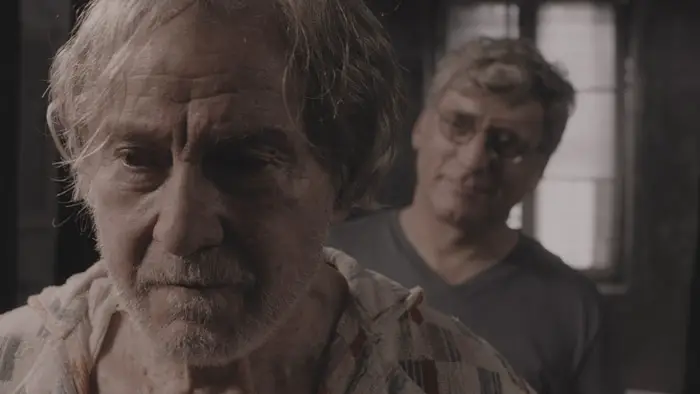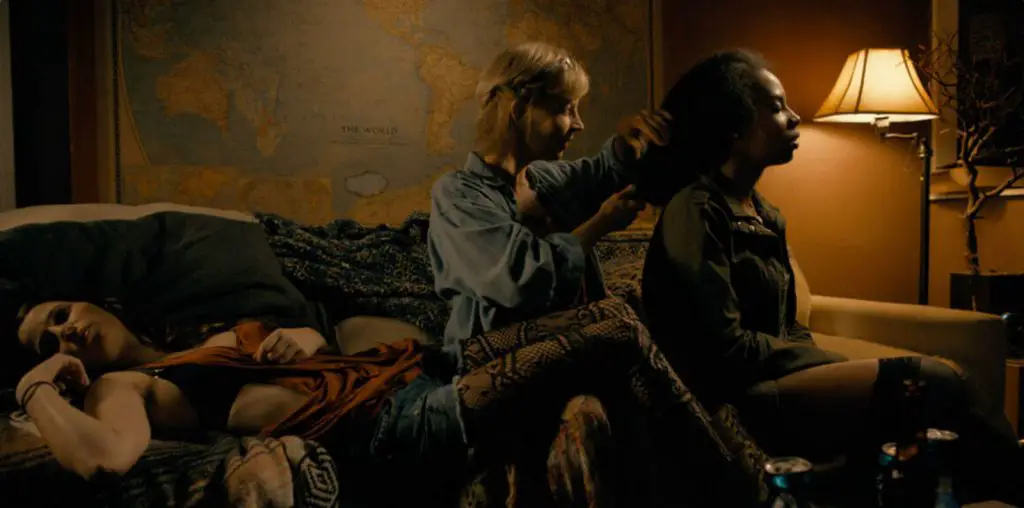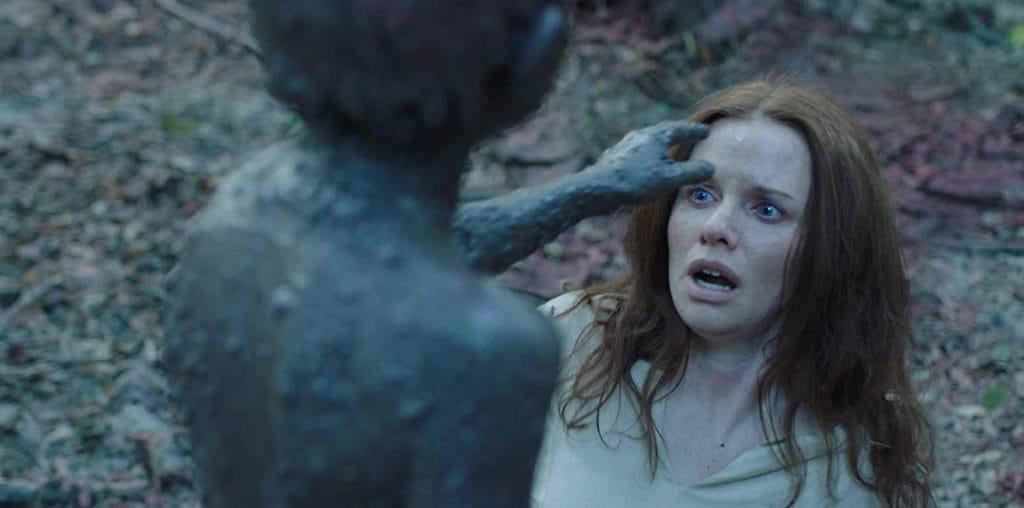
One of the few Russian filmmakers known – and recognized – outside of his home country, Pavel Lungin has been consistently writing and directing features since winning the Best Director prize at the 1990 Cannes Film Festival for his debut, Taxi Blues. Thirty years later, the man shows no signs of slowing down, with Esau marking his third feature in the past three years. Sadly, this exploration of brotherly bonds and ethnic and cultural ties demonstrates a sensibility that’s stuck in the 1990s, from the static framing and heightened dialogue exchanges to the stagnant plot and heart-on-the-sleeve messaging.
Esau (Lior Ashkenazi), a famous author who writes about bread, ventures to Jerusalem to spend time with his dying father, Abraham (Harvey Keitel). His brother Jacob (Mark Ivanir) greets him resentfully, despite having inherited the family bakery and married the woman they both once loved. Esau starts to write about his childhood instead of bread, which consequently forms the bulk of the film’s narration. Via a series of increasingly dull flashbacks (excluding a jarring one that involves a sliced-off finger), he recollects things like having to share his eyeglasses with Jacob or fighting over their mutual object of affection, Leah (Shira Haas). Past dramas and betrayals unravel, tempers flare, and an extended fight scene between the brothers may or may not resolve matters.

“…recollects things like having to share his eyeglasses with Jacob or fighting over their mutual object of affection…”
Everything is muted: Fred Kelemen’s monochromatic cinematography, Lior Ashkenazi’s central performance, the resolution. Nothing seems to truly be a stake. Mark Ivanir provides some spark as the explosive Jacob, but Lungin doesn’t seem that interested in exploring the roots of his existential angst. The movie drags on, further sagged by sketchy accents and poor attempts at humor. If levity isn’t Lungin’s forte, judging by this feature, he’s losing his grip on drama as well – how else can one explain silly lines like “From that day on, happiness and treachery were one,” or “Your body is like a gentle poet’s song?”
To the filmmaker’s credit, Esau does have a few things going for it. Esau and Jacob share some moments of tenderness, thanks to their characters’ dichotomy. Esau is steeped in Jewish tradition and palpable love for the culture, Lungin touching upon some mildly compelling themes of rediscovering one’s roots and finding a purpose in life. Keitel is marvelous, per usual. “Slowly, I walk in my new sealskin shoes,” he intones, imbuing the simple line with poetry and sadness missing from the rest of the narrative. In the few all-too-brief scenes that feature him, the actor displays a vulnerability rarely seen from the legendary, hard-as-steel Mr. White from Reservoir Dogs.
“A hope for pleasure is almost as enjoyable as the pleasure itself,” a character quotes Shakespeare at one point. I didn’t derive any pleasure in hoping for pleasure while watching Esau – and man, did I hope.

"…steeped in Jewish tradition and palpable love for the culture..."



Wow, it’s like a lash of a whip! But that was pretty on point! Good job, Alex!